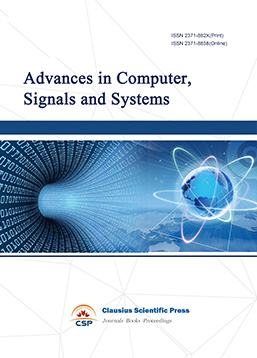Research on the application risks and countermeasures of ChatGPT generative artificial intelligence in social work
DOI: 10.23977/jaip.2024.070222 | Downloads: 59 | Views: 1613
Author(s)
Yuan Yi 1
Affiliation(s)
1 School of Humanities and Foreign Languages, Qingdao University of Technology, Qingdao, China
Corresponding Author
Yuan YiABSTRACT
Since its debut on November 30, 2022, OpenAI's ChatGPT has rapidly transformed natural language processing (NLP) and artificial intelligence-generated content (AIGC). Leveraging Generative Pre-trained Transformer (GPT) technology, ChatGPT offers cost-effective, efficient, and diverse content creation. Despite advancements like GPT-4, concerns about data security, algorithmic bias, and ethical issues persist, especially in social work. AI integration in social work presents challenges such as potential data breaches and weakened interpersonal connections, necessitating robust regulations and ethical guidelines. Addressing these issues requires strict data protection, diverse AI training datasets, and transparency in AI-driven decisions. By balancing technological integration with humanistic values, AI can enhance social work efficiency while maintaining essential human care and support. This ensures AI serves as a beneficial tool rather than replacing human contributions.
KEYWORDS
Data Security; Algorithmic Bias; Ethical Guidelines; Social Work IntegrationCITE THIS PAPER
Yuan Yi, Research on the application risks and countermeasures of ChatGPT generative artificial intelligence in social work. Journal of Artificial Intelligence Practice (2024) Vol. 7: 166-172. DOI: http://dx.doi.org/10.23977/jaip.2024.070222.
REFERENCES
[1] Agoldende, D. J. (2022). A Golden Decade of Deep Learning: Computing Systems & Applications. Daedalus, 151(2), 58-74.
[2] Fuchs, D. J. (2018). The Dangers of Human-like Bias in Machine-learning Algorithms. Missouri S&T's Peer Peer, 2(1), 1.
[3] Kasneci, E., Sebler, K., Küchemann, S., et al. (2023). ChatGPT for Good? On Opportunities and Challenges of Large Language Models for Education. Learning and Individual Differences, 103, 102274.
[4] Hartmann, J., Schwenzow, J., & Witte, M. (2023). The Political Ideology of Conversational AI: Converging Evidence on ChatGPT's Pro-environmental, Left-Libertarian Orientation. Retrieved from https://doi.org/10.48550/ arXiv.2301. 01768.
[5] Rozado, D. (2023). The Political Biases of ChatGPT. Social Sciences, 12(3), 148.
[6] McGee, R. W. (2023). Is ChatGPT Biased Against Conservatives? An Empirical Study. Retrieved from http://dx.doi. org/1 0.2139/ssrn.4359405.
| Downloads: | 16908 |
|---|---|
| Visits: | 609260 |
Sponsors, Associates, and Links
-
Power Systems Computation

-
Internet of Things (IoT) and Engineering Applications

-
Computing, Performance and Communication Systems

-
Advances in Computer, Signals and Systems

-
Journal of Network Computing and Applications

-
Journal of Web Systems and Applications

-
Journal of Electrotechnology, Electrical Engineering and Management

-
Journal of Wireless Sensors and Sensor Networks

-
Journal of Image Processing Theory and Applications

-
Mobile Computing and Networking

-
Vehicle Power and Propulsion

-
Frontiers in Computer Vision and Pattern Recognition

-
Knowledge Discovery and Data Mining Letters

-
Big Data Analysis and Cloud Computing

-
Electrical Insulation and Dielectrics

-
Crypto and Information Security

-
Journal of Neural Information Processing

-
Collaborative and Social Computing

-
International Journal of Network and Communication Technology

-
File and Storage Technologies

-
Frontiers in Genetic and Evolutionary Computation

-
Optical Network Design and Modeling

-
Journal of Virtual Reality and Artificial Intelligence

-
Natural Language Processing and Speech Recognition

-
Journal of High-Voltage

-
Programming Languages and Operating Systems

-
Visual Communications and Image Processing

-
Journal of Systems Analysis and Integration

-
Knowledge Representation and Automated Reasoning

-
Review of Information Display Techniques

-
Data and Knowledge Engineering

-
Journal of Database Systems

-
Journal of Cluster and Grid Computing

-
Cloud and Service-Oriented Computing

-
Journal of Networking, Architecture and Storage

-
Journal of Software Engineering and Metrics

-
Visualization Techniques

-
Journal of Parallel and Distributed Processing

-
Journal of Modeling, Analysis and Simulation

-
Journal of Privacy, Trust and Security

-
Journal of Cognitive Informatics and Cognitive Computing

-
Lecture Notes on Wireless Networks and Communications

-
International Journal of Computer and Communications Security

-
Journal of Multimedia Techniques

-
Automation and Machine Learning

-
Computational Linguistics Letters

-
Journal of Computer Architecture and Design

-
Journal of Ubiquitous and Future Networks


 Download as PDF
Download as PDF